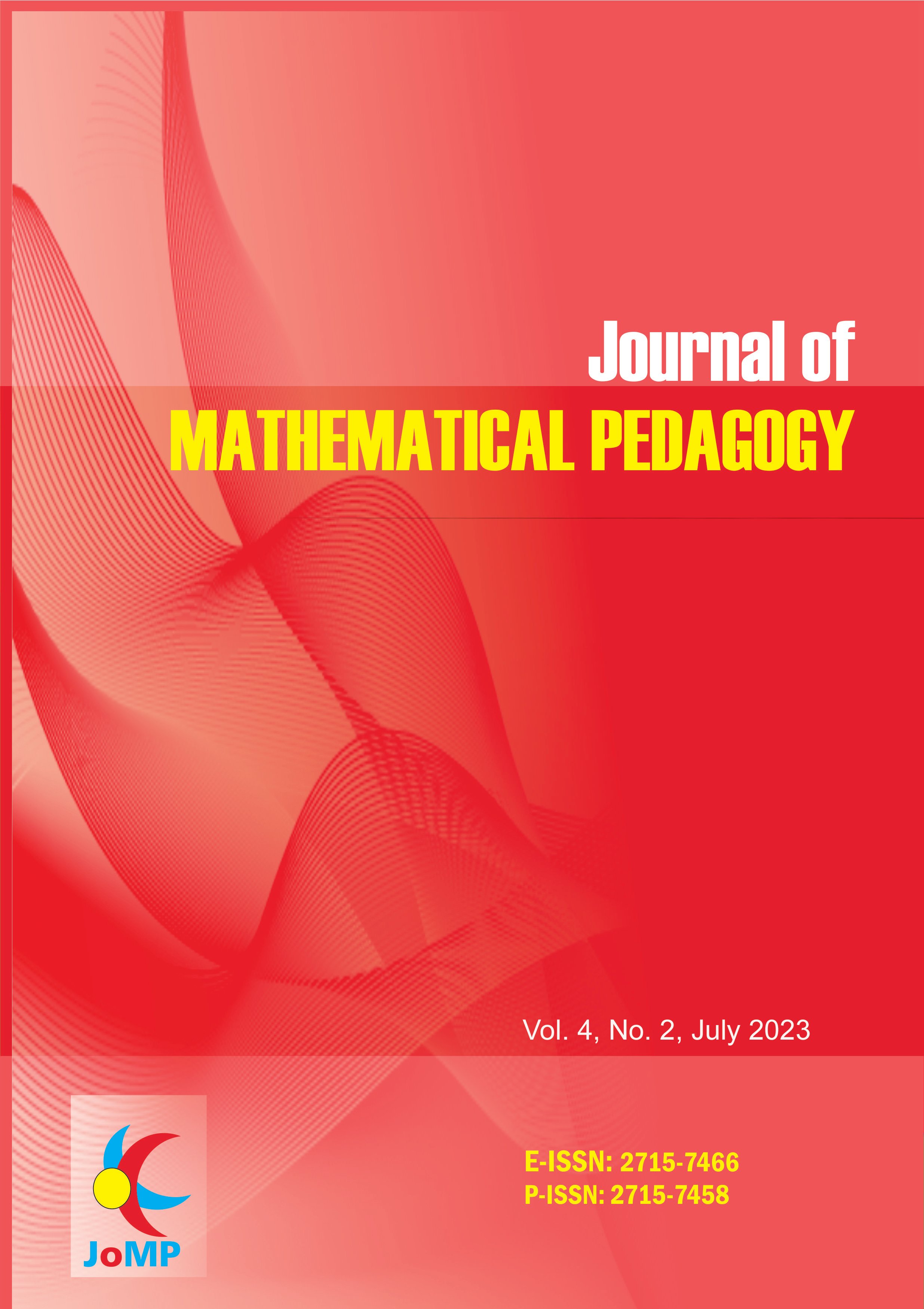Comparing Students' Problem-Solving Processes on Probability Tasks: Well-Structured and Ill-Structured Tasks
DOI:
https://doi.org/10.26740/jomp.v4n2.p57-73Keywords:
Problem solving, Ill-structured problems, well-structured problemsAbstract
This study aims to describe the differences in the problem-solving abilities of well-structured problems and ill-structured problems models related to the concept of opportunity for Grade VIII junior high school students. Two students with the same mathematical abilities were selected to be subjects according to our research objectives. The results show that the two samples find it more difficult to solve well-structured problems than ill-structured problems. When at the stage of understanding the problem students need to read the questions repeatedly and when asked to retell the students can't do it well. In the questions of the type of well-structured problems subject 1 can only mention what is asked, but it is not appropriate to state the conditions needed to solve the problem and in subject 2 it is found otherwise, while in ill-structured problems it is not appropriate to write down what is known but write down what is asked with precise and knowing the requirements to solve the problem. Subject 1 uses logical and logical reasoning strategies. Then, subject 2 uses a trial and error strategy with logical reasoning. The two subjects carried out problem solving according to plan, carried out the re-checking stage, and were able to find solutions to problems that did not require calculations in them but could not find solutions to problems that contained calculations and had to be solved by utilizing the probability theorem. These results can be used as an evaluation in the learning process or a reference for further research.
References
Al-Ghofiqi, M., Irawati, S., & Rahardi, R. (2019). Analisis Berpikir Kreatif Siswa Berkemampuan Matematika Rendah Dalam Menyelesaikan Ill-Structured Problem. Jurnal Pendidikan: Teori, Penelitian, Dan Pengembangan, 4(10), 1386-1395.
Bhardwaj, P. (2019). Types of sampling in research. Journal of Primary Care Specialties, 5(3), 157-163.
Dinsmore, D. L., & Fryer, L. K. (2023). Critical Thinking and Its Relation to Strategic Processing. In Educational Psychology Review (Vol. 35, Issue 1). Springer. https://doi.org/10.1007/s10648-023-09755-z
Lazar, L. (2018). The Cognitive Neuroscience of Design Creativity. In Journal of Experimental Neuroscience (Vol. 12). SAGE Publications Ltd. https://doi.org/10.1177/1179069518809664
Maharani, R. D., Dasari, D., & Nurlaelah, E. (2022). Analisis hambatan belajar (learning obstacle) siswa smp pada materi peluang. AKSIOMA: Jurnal Program Studi Pendidikan Matematika, 11(4), 3201. https://doi.org/10.24127/ajpm.v11i4.6214
Nurjamil, D., & Kurniawan, D. (2017). Perbandingan Mathematical Reasoning Antara Mahasiswa Yang Diberi Well Structured Problem Dan Ill Structured Problem. Jurnal Siliwangi: Seri Pendidikan, 3(2).
Pulgar, J., Candia, C., & Leonardi, P. M. (2020). Social networks and academic performance in physics: Undergraduate cooperation enhances ill-structured problem elaboration and inhibits well-structured problems solving. Physical Review Physics Education Research, 16(1). https://doi.org/10.1103/PHYSREVPHYSEDUCRES.16.010137
Rahmawati, A. D. (2020). Analisis Kesalahan Siswa SMP dalam Menyelesaikan Soal TIMSS-like Domain Data dan Peluang. Jurnal Ilmiah Pendidikan Matematika Volume, 9(3).
 Abstract views: 583
,
Abstract views: 583
, PDF Downloads: 663
PDF Downloads: 663





